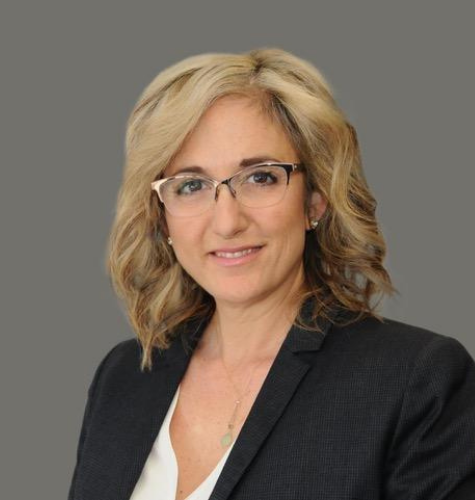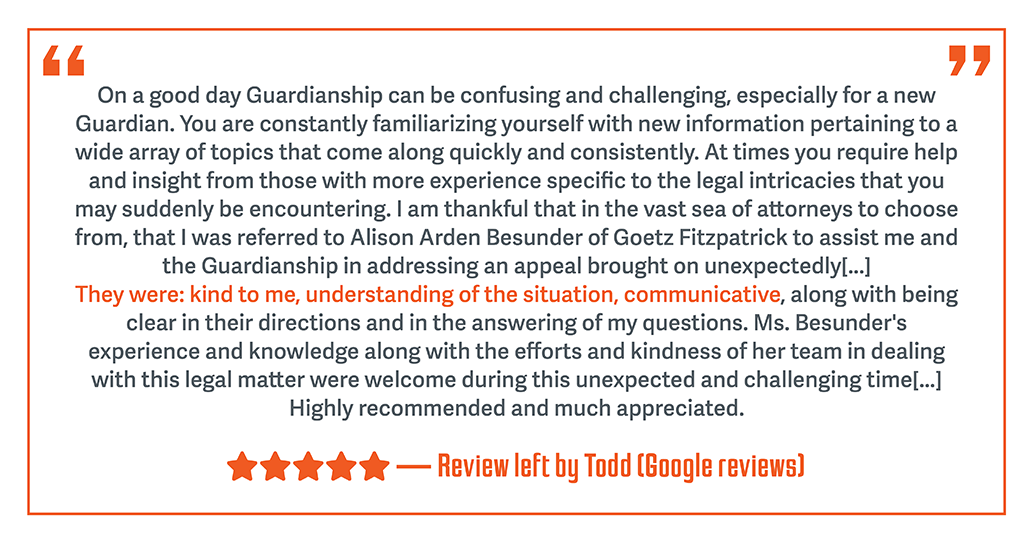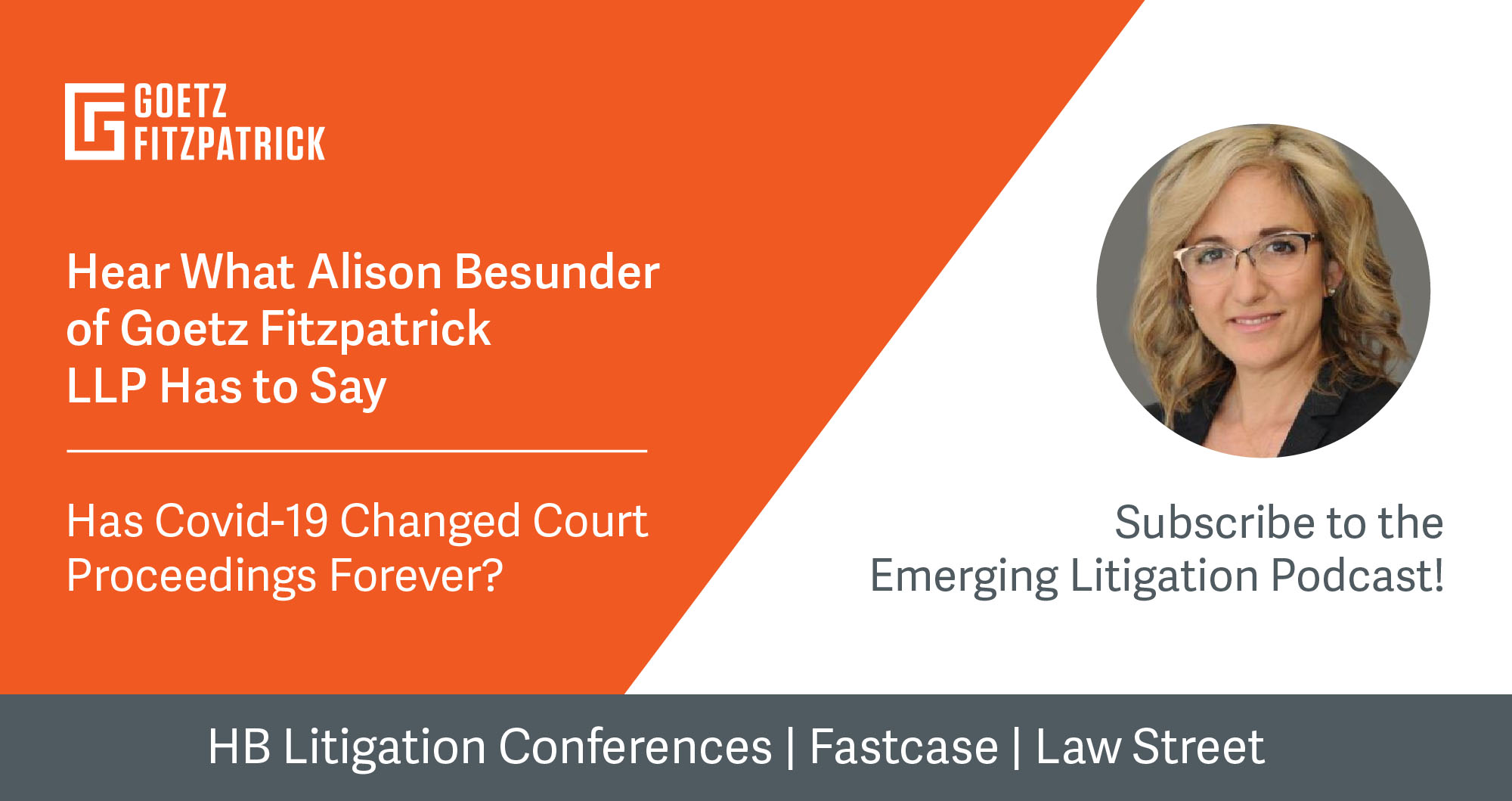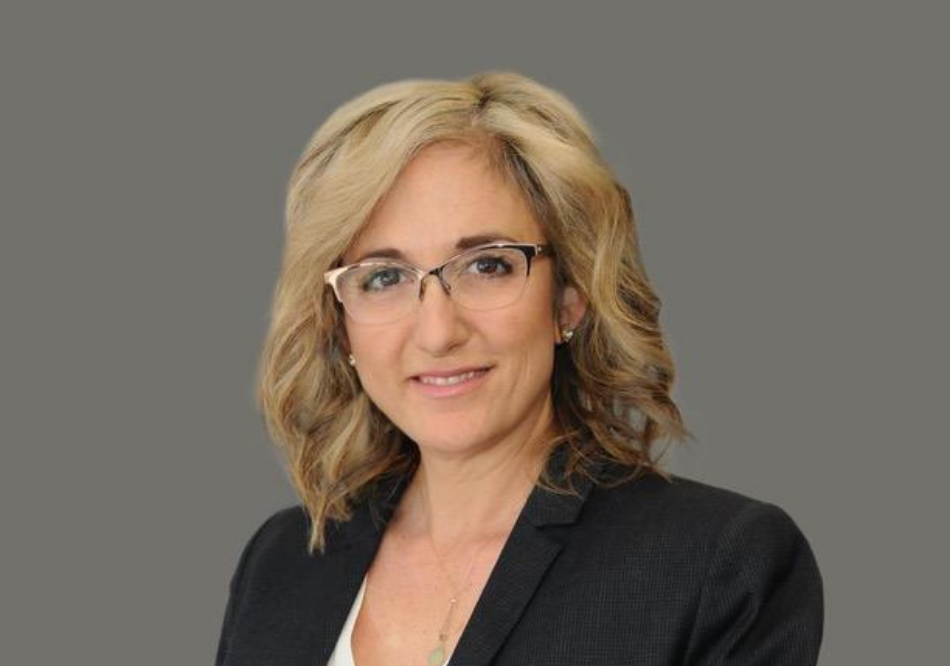

Alison Arden Besunder
Senior Partner & Chair, Trusts & Estates Group
CONTACT
B.A., SUNY Buffalo
Massachusetts
Second Circuit Court of Appeals
U.S. District Court, Eastern District of New York
U.S. District Court, Southern District of New York
Supreme Court of the United States
Get to Know Alison
Experience
Alison Arden Besunder is a Partner in the Trusts & Estates group at Goetz Fitzpatrick. She has extensive experience and focuses her practice in the areas of Trusts & Estate Planning, Guardianship, Estate Litigation, Commercial Litigation, Elder Law, and Business Succession Planning. Alison also assists her clients with Intellectual Property, Media & Technology in the areas of trademarks, copyrights, and brand protection, as well as estate planning tailored to the needs of owners of intellectual property such as writers, musicians, composers, artists, art collectors, and technology developers. Alison counsels clients on matters ranging from the simple to complex, helping them understand their documents and estate plan, minimize future disputes through proactive planning, and resolve disputes that proceed to litigation through negotiation, mediation, or trial.
Prior to joining Goetz Fitzpatrick, Alison founded Arden Besunder P.C. in 2009, which she managed for over a decade. Before founding Arden Besunder P.C., Alison was a commercial litigation partner at a national law firm, where she litigated complex commercial matters in a wide variety of areas including construction, real estate, finance, insurance, and healthcare in federal and state courts. She also helped fashion brands protect their intellectual property through trademark prosecution and anti-counterfeiting litigation.
Alison’s previous employment includes working with the Grievance Committee of the Second and Eleventh Judicial Districts as well as with a prominent First Amendment lawyer, representing small entertainment businesses affected by the change in New York City's zoning laws during the Giuliani administration and advancing their First Amendment and business rights.
Alison has been selected to the New York Metro Super Lawyers® list every year since 2019. She is an adjunct professor of the Trusts, Wills & Estate Planning Externship at Columbia Law School and serves on the New York State Bar Association’s Artificial Intelligence subcommittee, as well as on the board of the American Camping Association, Tri-State.

Expertise
Affiliations
Member, New York State Bar Association (NYSBA), Trusts and Estates Section
Member, NYSBA, Elder Law Section
Member, NYSBA, Intellectual Property Section
Member, NYSBA Technology Committee (2017-present)
Co-Chair, New York State Bar Association, Special Task Force on Privacy Law (2009-2011)
Member, NYSBA Committee on the Unauthorized Practice of Law (2007-2009)
Member, New York State Bar Association Committee on Animals (2009-2013)
Member, New York City Bar Association, Committee on Professional Discipline (2016)
Member, Brooklyn Bar Association
Member, American Camping Association, Tri-State (2018-present)
Adjunct Professor of Trusts & Estate Planning Externship, Columbia Law School (2020)
Insights
Testimonials


Podcasts


Hear what Alison Besunder of Arden Besunder PC has to say.


A Better Divorce Podcast with Andrea Vacca: Episode # 10
How Prenuptial Agreements Can Help You Have A Better Divorce with Alison Arden Besunder


Featured on Financially Ever After: Widowhood Podcast- Empowering Families in End-of-Life Decision Making
On the Financially Ever After: Widowhood Podcast where we take a deep dive into end-of-life decision making. Here is the link to the episode and some of the highlights from our conversation.
- Why it is crucial to ensure you have a healthcare proxy and living will in place.
- Openly discuss end-of-life decisions with loved ones to handle high-stress situations effectively.
- Set boundaries as a caregiver to avoid burnout and seek support from therapists.
- Utilize resources like personal needs guardians or geriatric care managers to find the right caregivers for your loved one.

